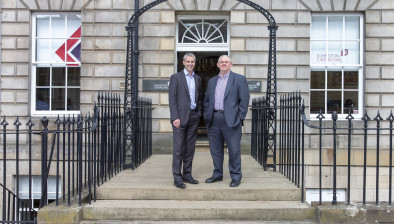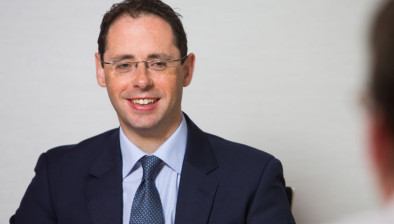Impending VAT changes ‘could catch construction firms off guard’
Construction contractors who don’t prepare for major VAT changes could face a host of financial difficulties from cashflow problems to reduced profit, one of the UK’s top VAT experts has warned.

Nigel Roberts
From October 1, significant changes are being introduced to the VAT treatment of supplies in the construction industry. HMRC is concerned about the current levels of ‘missing trader fraud’, which involves a supplier issuing a VAT invoice and collecting VAT from their customer before going ‘missing’ - without declaring the VAT to HMRC.
Nigel Roberts, head of VAT and duty at accountancy and business advisory firm Johnston Carmichael, said: “Significant changes to VAT rules directly impacting the construction industry due to come into force on 1 October have the potential to catch construction service providers across the country off guard.
“Following the introduction of the reverse charge rule the main contractor will now be responsible for declaring the VAT on services supplied by sub-contractors.
“All businesses involved in the construction industry will need to review their supply chains ahead of time to consider how they will be impacted by the changes. VAT will disappear from working capital and cash-flows will need to adjust to reflect this.”
The government is introducing the changes to the industry in reaction to an increase in “missing trader fraud”, where suppliers fail to declare any VAT received from business transactions to HMRC, that has resulted in an estimated loss of £100 million in tax.
The new regulations are set to affect a broad range of construction services including general construction, groundwork construction, civil engineering, renovations and maintenance services, HVAC, cleaning services and painting and decorators.
Smaller sub-contractors currently using the VAT Flat Rate Scheme (FRS) could be substantially worse off, Nigel said.
“As smaller sub-contractors will no longer be able to charge VAT for some services, they will be forced to fund the FRS from reduced receipts, in turn squeezing profit,” he added.
“FRS users should seek advice now on the impact of the 1 October changes. Most businesses will benefit from leaving the scheme and adopting standard VAT accounting.”
A recent survey of 8,000 SME construction firms by the Federation of Master Builders showed that 69% were not aware of reverse charge VAT, leading to calls from industry leaders to delay its implementation.
Nigel added: “With HMRC confirming that they will penalise non-compliance, it is crucial that any businesses who think they will be affected by these changes acts now to prepare.”
Johnston Carmichael is hosting a series of free events from 20-27 August in Aberdeen, Edinburgh, Glasgow and Inverness for firms in the property and construction sector. To book a place please visit www.johnstoncarmichael.com.























